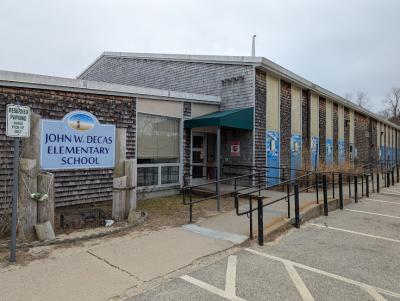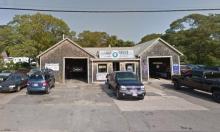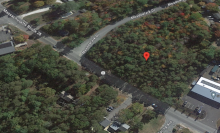Citizens’ petitions tackle community center, Town Meeting procedures and solar
Wareham citizens have submitted eight articles by petition to be voted on at the Spring Town Meeting on subjects including holding future Town Meetings on Saturdays, celebrating Indigenous Peoples’ Day rather than Columbus Day and placing a temporary moratorium on large solar installations.
Any resident can submit an article to Town Meeting after gathering signatures of 10 registered voters in Wareham. Such articles are automatically placed on the warrant, and do not need to be approved by the Select Board.
Voters will decide on these articles at the Monday, April 25 Town Meeting to be held at 7 p.m. at the High School.
Here is a brief introduction to each article:
Changes to Town Meetings
One petition led by Brenda Eckstrom calls for the spring and fall Town Meetings to be held at 11 a.m. on the fourth Saturday in April and October, respectively, with a requirement for a ⅔ majority vote needed to continue the meeting past 4 p.m. Currently, Town Meetings are held on the fourth Monday in April and October.
Town Elections would still be held on the first Tuesday in May, and polls would not be allowed to close before 6 p.m. (Currently, polls are open from 8 a.m. to 8 p.m. on Election Days.)
The petition notes that the special and annual spring Town Meetings held on Saturdays in 2021 saw larger-than-usual turnouts, and suggests that Saturday meetings would allow more people to attend. (Notably, the Tuesday, Feb. 22 Town Meeting that approved the purchase of the Little Harbor Country Club saw at least 450 voters attend.)
A related petition, also led by Eckstrom, asks for Town Meeting warrant articles to be voted on in order, rather than by lottery, as has been the tradition for some years. The petition explains that the lottery system was first introduced when Town Meeting needed a quorum of 150 people to vote on financial matters of more than $10,000 in an attempt to get voters to stay throughout the meeting. Now that the meetings no longer have quorum requirements, the petition argues that the lottery method is unnecessarily confusing and that should people wish to attend to vote only on one article, they should be able to arrive late or leave early, rather than having to sit through what could be hours of discussion about articles they may not be interested in.
Decas Community Center
Two articles related to the proposed Decas Community Center were submitted by lead petitioner Leslie Edwards Davis: One to allow the Decas Steering Committee to make a report to Town Meeting, and one that would authorize several actions related to making the community center a reality.
That petition asks for the town to grant the Decas Steering Committee and the recently formed John W. Decas Community Center Foundation access to the former Decas School building to help the town ready the building for occupancy. It further asks that the Council on Aging be moved into the school building by July 1, 2022.
The article also asks the town to issue and act on requests for proposals for a non-profit preschool program, a solar canopy and a non-profit food bank to operate within the building, with the expectations that such uses of the space could begin in July 2022 or at the start of the 2022-2023 school year. The Council on Aging; the South Shore Community Action Council’s Head Start program, currently located in Onset; and the Damien’s Place food pantry have all expressed their intent to move into Decas if possible.
Indigenous Peoples’ Day
Another petition article asks the town to recognize either Indigenous Peoples’ Day or Native American Day rather than Columbus Day on the second Monday in October each year.
Lead petitioner Jody Santagate wrote that Indigenous Peoples’ Day honors and celebrates the history and culture of Indigenous people across the country. The holiday began as a counter-celebration held on Columbus Day, which some say celebrates the violent history of colonization. Santagate notes that Wareham is home to at least 200 direct ancestors of the Wampanoag Tribe, and that the town’s seal bears a Wampanoag phrase: “Nepinnae Kekit,” which means summer home.
Make Town Clerk an elected position
Another article submitted by Eckstrom calls for the position of Town Clerk to be elected, rather than appointed.
The position was converted to an appointed one when Town Meeting passed a number of charter changes in June 2021. But those changes haven’t yet been approved by the state legislature, so the Town Clerk is a position up for votes at the May 3 Town Election.
The rationale for making the position appointed was that the job requires specialized skills. Eckstrom’s petition argues that making the position “dependent on pleasing the Town Administrator or Board of Selectmen can cause problems with the impartiality of the position.”
Limit solar farms
One petition would institute a moratorium on large-scale ground-mounted solar systems until June 30, 2023, or the 2023 Spring Town Meeting, whichever comes first.
Lead petitioner Annie Hayes explains that the article is designed to give the town time to study the future of solar in town.
At the June 2021 Town Meeting, voters passed an article with the same intent, but that article has not yet been approved by the Attorney General. A decision is due March 20.
A Solar Bylaw Committee has been working for months to develop new laws to better guide solar development in town, and plans to submit an article for inclusion on the warrant for the Special Town Meeting, which will be held within the April 25 Town Meeting.
Affordable housing
One article intends to update and improve the affordable housing bylaw passed at the June 2021 Town Meeting. That article, also led by Eckstrom, was intended to promote the development of affordable housing through the conversion of existing in-law and illegal apartments and allowing the subdivision of lots in some neighborhoods.
The bylaw was approved by the Attorney General, but due to some technical issues, it wasn’t guaranteed that units created through the new law would be counted toward the town’s affordable housing stock. One of the article’s goals was to help the town meet the state-set 10 percent threshold that allows the town to turn down large Chapter 40B housing developments.
So Eckstrom got back to work, collaborating with the state Department of Housing and Community Development and others to make sure that the law — and housing created through it — satisfy state requirements.















